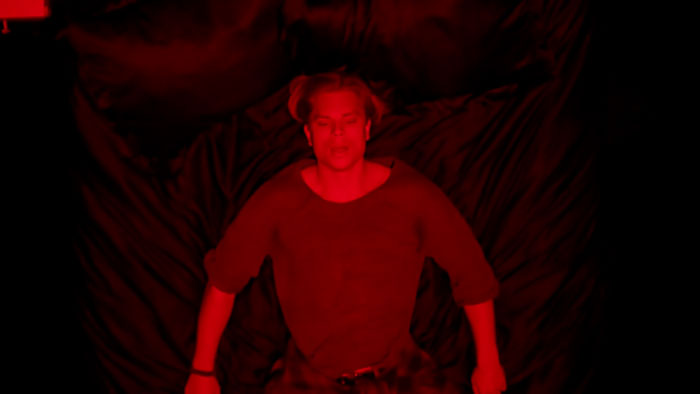
Inspired by the lives of Young Hollywood stars like River Phoenix, Corey Feldman, Heath Ledger, and Corey Haim, Michael Leoni’s Famous takes you on a non-stop thrill ride as his protagonist, Jason Mast, takes down the Hollywood elite over the course of an Oscar party. I spoke with director Michael Leoni about turning his stage play into a feature film and the state of the film business five years after #METOO.
The last time we spoke, it was for your film, When Today Ends, about teen suicide, and with Famous, you tackle the abuse of power in Hollywood. We spoke ever-so-briefly about your production company, An 11:11 Experience. Can you tell me a little more about how 11:11 was formed and the company’s mission?
Ever since I was a kid, I felt I had this calling. I didn’t really know what it was at first, but I’ve come to understand that it’s this deep desire to help shift people’s thinking into a different consciousness. I want people to leave one of my films or plays thinking and feeling about something in a way they never have before. All the work I’ve done, even when I was a kid, always had some connection to a social message or a topic I felt needed more attention around it. In fact, I can’t think of a time when I wasn’t focused on sharing a message through my work. So, as a company, our mission is to create work that has a social message and the capacity to help create change in people’s lives.
The name of my company comes from the idea that seeing 11:11 repeatedly is a sign to honor your calling. I kept seeing it everywhere, and once I knew what it meant, I thought it would be an excellent name for my company. All of our projects are about taking an audience through an experience. So it felt right to combine it and call the company An 11:11 Experience.

“…for Jason, none of it means anything unless his abuser is caught and stopped.”
At the opening of Famous, the title mentions that it was shot live before an audience. Was Famous originally a play, or was it always intended to be a film?
It actually started out as a film, but I quickly found myself in the throws of what you might call a Hollywood nightmare. But let’s not get into that. Long story short, after a few years, I finally got my rights back. And at that point, I asked myself, how can I get this message out there right now? Our company had just taken over a theater in West Hollywood that we called The 11:11, and I thought, let’s try this as a play. So, I adapted it into a play script, and we ran for ten months.
You’d have to be living under a rock not to know the inspiration behind the story of Famous. I’m curious about the inspiration that led to telling this specific story about your lead character Jason and his plan to expose the truth of #METOO Hollywood under the guise of a Hollywood Party.
I had heard so many stories about what happened to kids, teens, and young adults in the entertainment industry and the impact that this trauma still has on them. The stories that really resonated with me the most were Corey Feldman, Corey Haim, and River Phoenix. So their stories were the launching point for developing the character of Jason Mast.
I think the idea of putting them at a Hollywood party served multiple purposes. On the one hand, as a writer, I was able to share multiple survivor stories with characters flowing in and out of rooms at the party—for instance, the character of Caley. On the other hand, I felt like this was an important story to share, and it’s based on a young woman who’s a close friend of mine. She was sexually assaulted by a music producer from a major label when she was 16.
The party also creates a certain irony. An Oscar party is supposed to be the best night of your life but, for Jason, none of it means anything unless his abuser is caught and stopped. So it’s this contrast of thinking you’re getting everything you’ve ever wanted, but when you finally get it, you realize that it isn’t everything you ever wanted.

[…] Exposing the High Cost of Fame in Michael Leoni’s Famous Film Threat […]